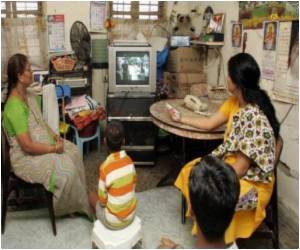Researchers say that just switching off the TV set may not you help keep your kids away from negative influence of the idiot-box, as indirect media exposure.

Researchers found that direct forms of exposure, like personal or parental viewing, did not have an independent impact, when factors like urban location, body shape and other influences were taken into account.
It appeared that changing attitudes within a group that had been exposed to television were a more powerful factor than actually watching the programs themselves.
In fact, higher peer media exposure were linked to a 60 percent increase in a girl's odds of having a high level of eating disorder symptoms, independently of her own viewing.
Lead author Anne Becker, of the Department of Global Health and Social Medicine at Harvard Medical School, said this was the first study to attempt to quantify the role of social networks in spreading the negative consequences of media consumption on eating disorders.
"Our findings suggest that social network exposure is not just a minor influence on eating pathology here, but rather, IS the exposure of concern.
Advertisement
Nicholas Christakis, of the Harvard Medical School, has studied the spread of health problems through social networks.
Advertisement
It's a kind of filtration process that takes place by virtue of our social networks," she said.
Source-ANI







